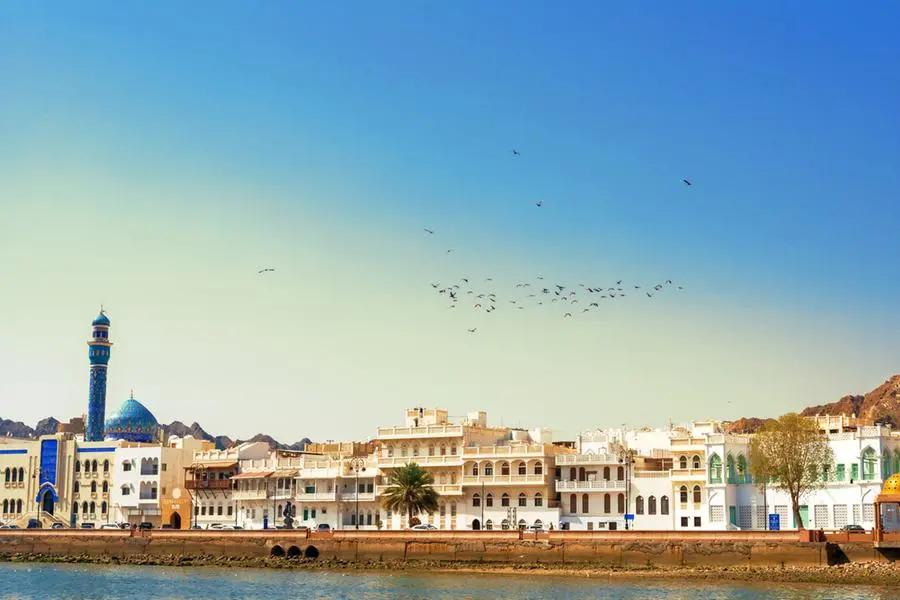PHOTO
The Special Economic Zone at Duqm (SEZAD), spanning 2,000 square kilometres, is the largest of its kind in the MENA region.
Oman stands at a pivotal crossroads, where global energy dynamics, regional instability, and long-term economic aspirations intersect. As geopolitical risks in the Strait of Hormuz amplify uncertainties, Oman emerges not only as a neutral mediator but also as a proactive architect of future-ready economic solutions—anchored by Duqm's development and strengthened by Vision 2040.
The Strait of Hormuz remains a critical artery for global energy, with over 20% of the world's petroleum and one-fifth of global LNG transiting its waters. While recent diplomatic efforts have helped to ease tensions, the vulnerabilities of this chokepoint persist. Oman’s strategic response is Duqm—a secure and stable alternative that mitigates geopolitical risk while ensuring efficient, uninterrupted energy and trade flows.
Duqm’s location outside the Strait of Hormuz is more than strategic—it is economically transformative. It shortens shipping times by up to three days, significantly reduces freight and insurance costs, and shields trade routes from geopolitical tensions. These features provide Oman and its partners with a dependable, cost-effective trade gateway via the Arabian Sea.
The Special Economic Zone at Duqm (SEZAD), spanning 2,000 square kilometres, is the largest of its kind in the MENA region. It is home to the 230,000 bpd Duqm Refinery and the Ras Markaz Oil Terminal, with a storage capacity of 26 million barrels. These facilities position Duqm as a vital energy hub, supporting both conventional and clean energy ambitions.
Connectivity is at the heart of Oman’s national strategy. Modern highways, upgraded airports, and a planned regional railway will further integrate Duqm into regional and global logistics networks. These efforts aim to establish a seamless, multimodal economic corridor linking Oman with its GCC neighbours and beyond.
This is the time for GCC-wide cooperation. Oman cannot shoulder the burden alone. Shared infrastructure—such as road corridors, pipelines, and port linkages—must be a collective effort among GCC members. Collaboration with Saudi Arabia, the UAE, Qatar, and Kuwait is essential to building resilient economic corridors that bolster regional energy security and trade diversification.
Oman’s policy of neutrality and balanced diplomacy reinforces its role as a trusted regional partner. This credibility attracts investment, reduces perceived risks, and enables Oman to engage constructively with all stakeholders. Partnerships such as the Duqm Refinery with Kuwait, road connectivity with Saudi Arabia and the UAE, and discussions around regional rail demonstrate the viability of cross-border collaboration.
The Special Economic Zone at Duqm (SEZAD), spanning 2,000 square kilometres, is the largest of its kind in the MENA region.
From a diplomatic and economic standpoint, Oman’s neutrality remains one of its most powerful strategic assets. This stance uniquely facilitates consensus-building among diverse regional actors, fostering an environment conducive to investment and significantly lowering the perceived risk premium for major long-term infrastructure projects. This role is particularly important for neighbouring Gulf nations like Saudi Arabia, Qatar, and the UAE, which are actively seeking diversified export routes and secure logistics solutions amidst evolving regional dynamics.
For instance, Qatar’s ambitious LNG expansion could significantly benefit from Duqm’s strategic redundancy in storage and export, enhancing market access and reliability. Likewise, Oman’s transparent collaboration with the UAE and Saudi Arabia on critical energy and logistics initiatives directly supports the ambitious goals outlined in Saudi Vision 2030 and the UAE’s Energy Strategy 2050. Collaborative projects such as the strategic Ibri-Duqm road connecting Oman, Saudi Arabia, and the UAE, along with future railway initiatives, are designed to create seamless economic corridors for mutual benefit. The successful partnership in the Duqm Refinery with Kuwait exemplifies Oman’s capacity for effective cross-border industrial integration.
For major energy-importing nations in Asia and Europe, Oman offers a dual advantage: stable, secure delivery points for conventional energy, and promising new partnerships in the clean energy sector—especially as Oman scales up its green hydrogen exports. Duqm, in particular, presents highly attractive investor incentives, including 100% foreign ownership, multi-year tax exemptions, and robust regulatory support that streamlines business operations. These conditions create an exceptionally welcoming landscape for global investors and sustainable private sector growth.
These comprehensive strategic efforts are intricately aligned with Vision 2040—Oman’s overarching national blueprint for economic diversification and long-term sustainability. The Vision aims to significantly increase non-oil GDP, attract private investment, and foster innovation-led growth across multiple sectors.
The role of the private sector in this transformation is not only encouraged but considered essential. Oman is actively nurturing a vibrant local SME ecosystem, integrating it into industrial supply chains within the Special Economic Zone.
Oman’s developmental path is uniquely defined by pragmatism, strategic foresight, and a firm commitment to inclusive growth. By reducing regional dependencies, embracing clean energy, and promoting integrated logistics, Oman is crafting a sustainable development model that offers valuable lessons for the world. Under the visionary leadership of His Majesty Sultan Haitham bin Tarik, Oman is not merely responding to today’s challenges—it is shaping solutions for the future. In a world seeking certainty and innovation, Oman stands ready. The message to global partners is clear: Oman is a gateway to the future, and Duqm is open for business. The time to engage is now.
2022 © All right reserved for Oman Establishment for Press, Publication and Advertising (OEPPA) Provided by SyndiGate Media Inc. (Syndigate.info).




















